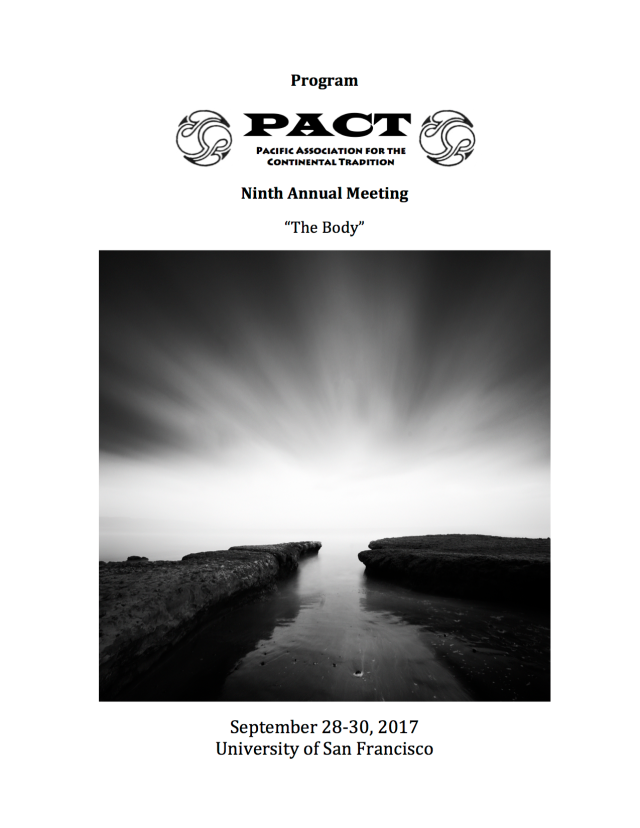
I’ll be speaking at the meeting of the Pacific Association for the Continental Tradition (PACT) this Friday at the University of San Francisco. The full program is available here. My schedule has been unreasonably busy as of late, but I’ll try and report back on the overall feel of the conference. It looks like it will be a good one. For those interested, I’m copying the intro for my talk below. Readers will no doubt recognize the themes as they’re similar to what I’ve been writing about here in the past few months.
The Ecology of the Concept: Montero, Dreyfus, and McDowell
In this paper I examine the so-called Dreyfus–McDowell debate to shed light on the role of concepts in embodied action.[1] For Dreyfus, to allege that embodied action is conceptual in nature is to over intellectualize the body, to illegitimately read into more primary processes a set of rational faculties that participate in action only in rare moments of detached reflection. In contrast, McDowell, following Wilfrid Sellars, alleges that even basic embodied comportment requires for its success a conceptual construction. That is, for McDowell, action is always conceptually guided, albeit automatically, unconsciously, and somatically.
I will argue with McDowell and Barbara Gail Montero, and against Dreyfus, that the way to think about embodied action is not to see it as nonconceptual but to re-read the conceptual as an act or skill of the body. The concept on this view is a skill of the understanding, to use Alva Noë’s language.[2] Insofar as such skills afford meaningful discernment and possibilities for action, the concept becomes an act of transformation in the experience of the individual, allowing him or her new capacities unavailable to the uninitiated. In other words, I will show that the concept is an activity, a way of acting upon one’s actions; it reorganizes the content and meaning of perception, affording new sites of engagement, allowing the conceptual to guide action even in so-called flow states.
To articulate this ecology of the concept, I will re-situate the body as the site of the conceptual and suggest that the body’s engagement with the environment is already conceptually structured, though not necessarily in an intellectually distanced way. This path forward breaks down the mind–body dualism without collapsing the distinction into either term. The paper proceeds in several sections. First, I describe Dreyfus’s descriptions of flow and skillful coping, the intentional arc, and the role of deliberation in expert action, positions that together generate a nonconceptual and nonminded view of expert action. Second, I lay out McDowell’s and Montero’s counterclaims to the nonconceptual view.
To this end, I describe McDowell’s view that mindedness is pervasive in both perception and action. I then evaluate Montero’s claims that not only should perception and action be seen as conceptual throughout, but also that modes of second-order judgment and deliberation are often essential to expert action. Montero’s so-called cognition-in-action principle, I conclude, forms not only a coherent philosophy for understanding action and perception, but also offers resources for understanding the role of mind in life more generally.
[1] Schear eds., Mind, Reason, and Being-in-the-World: The Dreyfus–McDowell Debate.
[2] Noë, Varieties of Presence.
hope you get some good feedback, how about some bootleg audio (you must know a deadhead or two in SF) ?
LikeLike
ps are you really talk about concepts or rather acts of conceptualization?
LikeLiked by 1 person
Conceptualization as embodied skill: with ‘concepts’ being the informational content of assembled linguistic tokens, and cognitive-to-motor actions (primitive intentionality) being how bodies respond within semiotically charged ecologies?
LikeLiked by 1 person